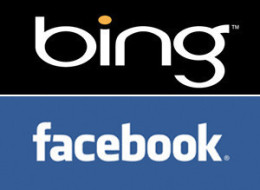A recent Microsoft video suggests the company considers OpenOffice.org a significant threat to its own Office suite.
Titled “A Few Perspectives on OpenOffice.org,” the video features a series of horror stories from customers who tried the open-source productivity suite and suffered from excess costs as well as IT resources, performance and compatibility issues.
A series of customer quotes flashes across the screen in the slickly animated video, read aloud by a series of unseen narrators. “If an open-source freeware solution breaks, who's going to fix it?” according to a statement ascribed to a school district official in the U.S.
“When we returned to Microsoft Office after our experience with OpenOffice, you could practically hear a collective sigh of relief across the entire district,” states another comment attributed to a U.S. school system official.
Comments are not enabled on the video's YouTube page.
Microsoft is facing competition from OpenOffice.org on multiple fronts, from the commercial version sold by project owner Oracle, as well as offshoots like the recently announced LibreOffice.
Phi Beta Iota: Google is in more trouble than Microsoft. Oracle will not scale, and IBM is not as imaginative as it likes to believe. Microsoft, however, has no strategy at all. Attacking OpenOffice in an era of Open Everything is a sure sign that Microsoft leadership is struggling–and this tracks with the decline of the company under Steve Balmer. We believe there will be a need for Bill Gates to take the helm again, or Microsoft is going to start falling apart and will fail to use the time it has right now–the next two years–to bury the competition by innovating itself into the future.
Guest Comment:
“Microsoft as a corporation is disgraceful. The classic case is when they bribed Nigerian Officials to replace Linux with Windows on school computers. http://www.facebook.com/l/8396a;www.geek.com/articles/news/mandriva-ceo-calls-out-microsoft-ceo-steve-ballmer-2007112/ I prefer to work with an operating system with a Social Contract http://www.facebook.com/l/8396a;www.debian.org/social_contract or code of conduct: http://www.facebook.com/l/8396a;www.ubuntu.com/community/conduct”
Tip of the Hat to Paul Harper at Facebook.
Robert Steele's response: Quite right. Not sure we can turn a pig into a cow, but miracles do happen. I predict Bill Gates will return to run Microsoft, the question is, has he learned to listen to others? Jury is still out on that one.










